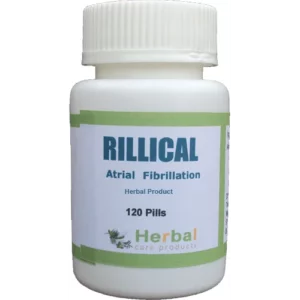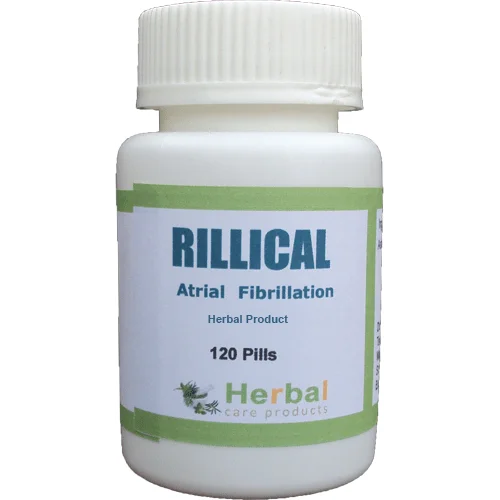Atrial Fibrillation (AFib) is a common medical condition that affects the heart, causing it to beat irregularly and too quickly. It can be dangerous and life-threatening if it is not treated properly. Fortunately, there are many diet tips and lifestyle changes that can help to prevent and control AFib. This article will explore the best diet tips to prevent and manage Atrial Fibrillation.
What is Atrial Fibrillation?
Atrial Fibrillation (AFib) is a type of cardiac arrhythmia, or irregular heartbeat. It occurs when the upper chambers of the heart (the atria) beat too quickly and chaotically. This causes the heart to be unable to effectively pump blood throughout the body, and can lead to complications, such as stroke, heart failure, and even death.
What Causes Atrial Fibrillation?
Atrial Fibrillation is caused by a variety of factors, including high blood pressure, heart disease, thyroid disease, certain medications, and excessive alcohol consumption. It can also occur due to certain lifestyle choices, such as smoking, lack of exercise, and poor diet.
The Benefits of a Healthy Diet
Eating a healthy, balanced diet can help to reduce the risk of developing Atrial Fibrillation. Eating a diet that is rich in fruits, vegetables, and whole grains can help to reduce blood pressure, cholesterol levels, and inflammation. It can also help to maintain a healthy weight, which is important for preventing AFib.
The Best Diet Tips to Prevent Atrial Fibrillation
Here are 15 diet tips to help prevent or manage Atrial Fibrillation:
1. Eat a Balanced Diet
Eating a balanced diet that is rich in fruits, vegetables, whole grains, low-fat dairy, and lean proteins can help to reduce the risk of developing Atrial Fibrillation.
2. Avoid Processed Foods
Processed foods are high in sodium, fat, and sugar, which can increase the risk of Atrial Fibrillation. Try to limit your intake of processed foods, such as chips, cookies, and crackers.
3. Increase Your Intake of Omega-3s
Omega-3 fatty acids are known to reduce inflammation, and can help to prevent Atrial Fibrillation. Good sources of omega-3s include fatty fish, such as salmon and tuna, walnuts, flaxseed, and chia seeds.
4. Limit Your Intake of Salt
Too much salt in your diet can increase the risk of developing Atrial Fibrillation. Try to limit your intake of salty foods, such as processed meats, canned soups, and condiments.
5. Avoid Caffeine and Alcohol
Caffeine and alcohol can both increase your risk of developing Atrial Fibrillation. Try to limit your intake of both, or avoid them entirely.
6. Eat More Potassium-Rich Foods
Potassium helps to regulate your heart rate, and can help to prevent Atrial Fibrillation. Good sources of potassium include bananas, sweet potatoes, tomatoes, spinach, and avocados.
7. Eat Less Saturated Fat
Saturated fats can increase your risk of developing Atrial Fibrillation. Try to limit your intake of foods that are high in saturated fat, such as red meat, full-fat dairy products, and fried foods.
8. Eat More Fiber
Eating a diet that is high in fiber can help to reduce the risk of Atrial Fibrillation. Good sources of fiber include whole grains, legumes, fruits, and vegetables.
9. Avoid Sugary Drinks
Sugary drinks, such as soda and juice, can increase your risk of developing Atrial Fibrillation. Try to limit your intake of sugary drinks, or avoid them entirely.
10. Avoid Trans Fats
Trans fats, such as those found in processed foods and fast foods, can increase your risk of developing Atrial Fibrillation. Avoid trans fats as much as possible.
11. Eat More Plant-Based Foods
Eating more plant-based foods, such as fruits, vegetables, and whole grains, can help to reduce the risk of Atrial Fibrillation.
12. Exercise Regularly
Regular physical activity can help to reduce the risk of Atrial Fibrillation. Try to get at least 30 minutes of exercise per day.
13. Manage Stress
Stress can increase your risk of developing Atrial Fibrillation. Try to manage stress with relaxation techniques, such as yoga, meditation, and deep breathing.
14. Try Herbal Remedies for Atrial Fibrillation
In addition to avoiding certain foods, there are some Herbal Remedies for Atrial Fibrillation that may be beneficial for treating AFib. These include:
Herbal Treatments
Herbal Treatment for Atrial Fibrillation such as hawthorn, ginger, and magnesium can help to reduce symptoms of AFib. It is important to speak to a doctor before taking any herbal treatments, as some may interact with medications.
Acupuncture
Acupuncture is an ancient Chinese practice that involves the insertion of needles into specific points on the body. It has been shown to be beneficial for treating AFib, as it helps to reduce inflammation and improve blood flow.
Exercise
 Regular exercise has been shown to be beneficial for reducing the risk of developing AFib, as well as reducing the severity of symptoms. It is important to speak to a doctor before starting an exercise program, as some activities may be too strenuous for those with AFib.
Regular exercise has been shown to be beneficial for reducing the risk of developing AFib, as well as reducing the severity of symptoms. It is important to speak to a doctor before starting an exercise program, as some activities may be too strenuous for those with AFib.
Stress Management
Stress can be a trigger for AFib, so it is important to manage stress levels. This can be done through relaxation techniques such as yoga or meditation, or by taking time for self-care activities like reading or taking a hot bath.
Dietary Changes
Making dietary changes can help to reduce the risk of developing AFib, as well as reduce the severity of symptoms. This includes avoiding processed foods and saturated fats, and opting for lean proteins, low-fat dairy, and plant-based proteins instead. Additionally, it is important to limit added sugars and caffeine.

